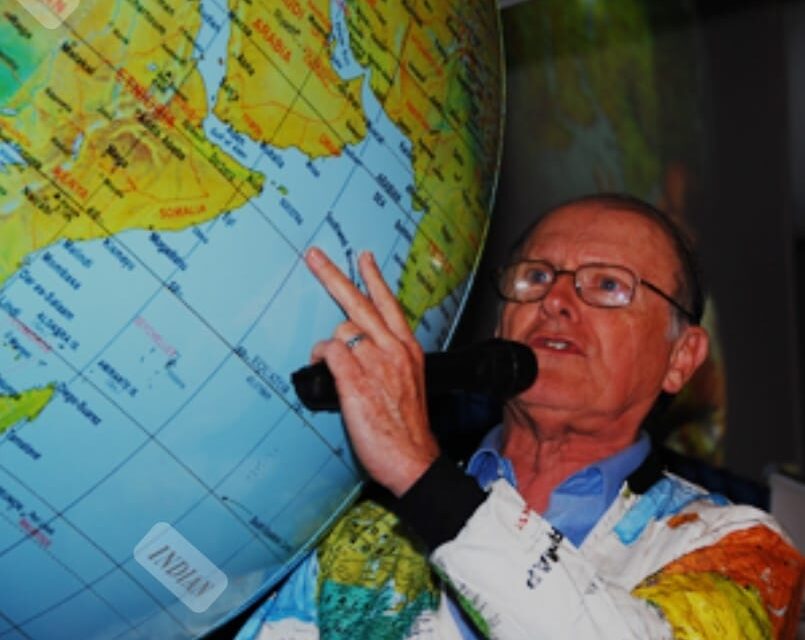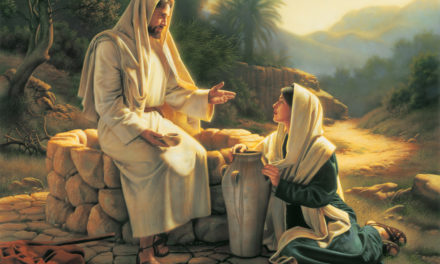“Rarely seen without his world map jacket or inflatable globe, George always prayed for the nations and current issues. He was energized by encouraging others and keeping in contact with thousands of friends and ministry partners through letters, emails, and phone calls” – Operation Mobilisation website.
A Christian leader would either enlarge or reduce Heaven’s population. George Verwer’s Operation Mobilisation, a mission across borders, cultures, and continents, resonates with the ‘Methodist doctrine of mission,’ especially a world parish with the reality of the world church. Just as the sphere of the early Methodist activity shifted from English parishes to distant parts of the globe and from different distant parts of the world reversing to English parishes, George’s Operation Mobilisation spread from Tennessee to different foreign soil across the world.
For over 40 years, George’s ministry and leadership enlarged and impacted millions for Jesus Christ, including myself. George’s authentic leadership, lifestyle, and zeal until his death on April 14, 2023, for the gospel’s spread continue to motivate countless individuals and churches into more countercultural and intentional leadership and missional involvement. George’s Operation Mobilisation is a missionary legacy of mobilising, for the missionally unreached and the unengaged through Bible studies, teaching students, building businesses, relief and development, and the creative arts in partnership with the local church. George’s Operation Mobilisation, shaped by passion ‘to see all the peoples of the world finally and eternally glad in Christ’ remains a penetrating model for the leadership and mission of the church today.
George, born in New Jersey, USA, on July 3, 1938, was given a copy of the Gospel of John at age 14 by Dorothea Clapp. In answer to Clapp’s prayer three years after praying for over 18 years for the students at George’s school to become passionate Jesus followers and take His message to the ends of the earth, George at age 16 on March 5, 1955, at a Jack Wyrtzen meeting, in which Billy Graham spoke in Madison Square Garden, New York City made a personal commitment to follow Christ—born to Eleanor Caddell Verwer and George Verwer Sr, a Dutch immigrant and a member of a Reformed Church in America.
Under intense mission passion at college in Tennessee and Jesus’ commission to make disciples and make Bible available to the unreached, in 1957, George and ‘two friends sold some of their possessions to fund a road trip to Mexico: taking 20,000 Spanish-language tracts and 10,000 Gospel booklets. The trip led to many more and fanned the flame of George’s conviction to share God’s Word with those who’d never heard it.’ In response to God’s call upon his life, George moved to Moody Bible Institute in Chicago, Illinois, and ‘blazed a trail for world mission, motivating others in nights of prayer and planning further literature distribution ventures. It was at Moody that George met Drena Knecht, who would become his wife.’ They got married in 1960 and ‘sold some of their wedding gifts to fund a six-month outreach to Mexico City before moving to Spain, where they established what would become OM’s work there.’ The mission goal of George and his friends for Europe is to mobilise local churches said for global missions led by indigenous rather than foreign missionaries. With the burden to mobilise young people into mission, George was arrested and deported to Austria while trying to smuggle Bibles into Communist-controlled countries.
Under George’s missional leadership and expansion of Operation Mobilisation, he rechristened its first Dutch ship, Umanak, to Logos. Logos, the first of five vessels, was launched in 1971 and sailed 230,000 nautical miles to 250 ports. The second ship was launched in 1977, and more than 49 million people have visited the onboard book fairs, with over 70 million portions of Scripture distributed during port calls in 151 countries.’ Known for his trademark globe jacket with an inflatable globe of the world as a visual aid, George, even in his death, lives on ‘with the reality of the unreached who so desperately need to hear the Good News.’
George, at age 65, stepped down as international director of Operation Mobilisation in August 2003, and Peter Maiden took over from him. George’s conviction to share the Word of God on foreign soil resonates with John Wesley’s doctrine of mission and famous declaration of ‘I look upon all the World as my parish.’ This declaration exemplifies not just an itinerant career but according to Professor Andrew Walls in his book, Crossing Cultural Frontiers: Studies in the History of World Christianity, it is ‘a justification for preaching in other people’s parishes and a declaration of intent to go on doing so’ in foreign soil.
George’s Operation Mobilisation, a mission across borders, cultures, and continents, remains a model of an itinerant and countercultural global mission to overcome church decline. George’s Operation Mobilisation reminds us not only of the hopelessness of our mission and leadership without Jesus Christ but an assurance of hope through the Holy Spirit that reveals and creates an internal necessity for missionary work concerning church and leadership renewal. Without the conviction that Jesus could be exalted and His claims vindicated only by the conversion and salvation of the soul, missionary work becomes a misery and a maintenance mode.
Indeed, George remains unmistakable evidence of prevenient grace, the movement of the Holy Spirit who brings conviction and leads to surrender and salvation. George remains a testimony that his early awareness of spiritual reality was authentic.











Recent Comments